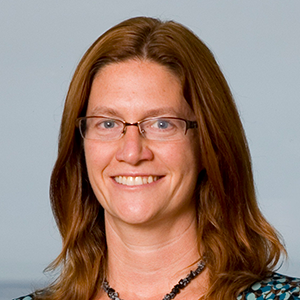
20 Nov Interview with Kristine Ashcraft of YouScript

Kristine Ashcraft is a molecular biologist by training and is CEO of YouScript Inc. She has worked in the precision medicine space since 2000. Kristine has authored multiple publications on the clinical and economic benefits of pharmacogenomic testing including one lauded as one of the most influential publications at a recent AMIA meeting. She has been interviewed by numerous media outlets including the New York Times, the Wall Street Journal, and NBC Nightly News and has spoken at PMWC, SXSW, ASHG, and numerous Precision Medicine Conferences. Read her full bio.
Interview with Kristine Ashcraft of YouScript
Q: There are various new, emerging technologies that bring us closer towards a cure for life-threatening disorders such as cancer, HIV, or Huntington’s disease. Prominent examples include the popular gene editing tool CRISPR or new and improved cell and gene therapies. By when can we expect these new technologies being part of routine clinical care?
A: It’s certainly hard to predict, but our goal is to see precision medicine tools in the hands of most providers in the next five years.
Q: What other emerging technologies will have a significant impact on patient care in the near and far future?
A: I believe that pharmacgoenomic-guided medication management is the lowest hanging fruit in precision medicine. Much of the focus has been on cancer and disease in the space, but we can see significant care improvements and cost reductions with pharmacogenomics today; not in research but in clinical applications.
Q: In order to maximize the potential of the aforementioned technologies in the clinic, what strategies need to be adapted?
A: Healthcare organizations need to create a process and budget for integrating and deploying new technologies. For pharmacogenomics, pharmacists need to be leveraged to lead these initiatives. For medical genetics, genetic counselor resources need to be available. And, everyone needs to invest in provider education in precision medicine.
Q: What are some of the major challenges that need to be overcome before we can see widespread applications across the clinic?
A: We need to standardize how we exchange data across health systems to ensure ease of patient data identification and accessibility. Currently, if a patient has their record in one system but for one reason or another move to a new system, the chance of their data moving with them is low. This leads to delivery challenges and delays in care and part of the reason we are lab-agnostic and have created a HIPAA-compliant way to share pharmacogenomic patient data in any YouScript deployment.
Q: How can and should the community work together to get those various technologies safely into the clinic?
A: We need to band together to improve provider education and change the reimbursement conversation. Historically, we have put patients in large cohorts and asked focused questions about how to treat them and the associated reimbursement – should CYP2C19 testing be covered for ACS/PCI patients taking clopidogrel? We need to move beyond the silos and ask more global questions – does a panel of genetic tests that help select safer drugs and doses for many commonly prescribed medications make sense for this patient? We need to share best practices and outcomes, and work together to move toward truly personalized medicine.
Q: What solution is your organization providing to address what need in precision medicine?
A: YouScript provides cloud-based precision medication management platform mitigating polypharmacy risk with real-time, gene-based medication guidance. Currently we are spending $528 billion on morbidity and mortality to un-optimized medications. This number is only going to go up until we utilize better tools that aid providers in prescribing the right dose for the right patient.
Q: Is there anything you would like to share with the PMWC audience?
A: In our last prospective, randomized controlled trial published in PLOSOne, we showed a statistically significant 52% reduction in readmissions, 42% reduction in ER visits, and 85% reduction in mortality saving over $4300 per patient in just 60-days. If targeted pharmacogenomic programs including integrated clinical decision support are not part of your patient safety and precision medicine strategy, they need to be.






